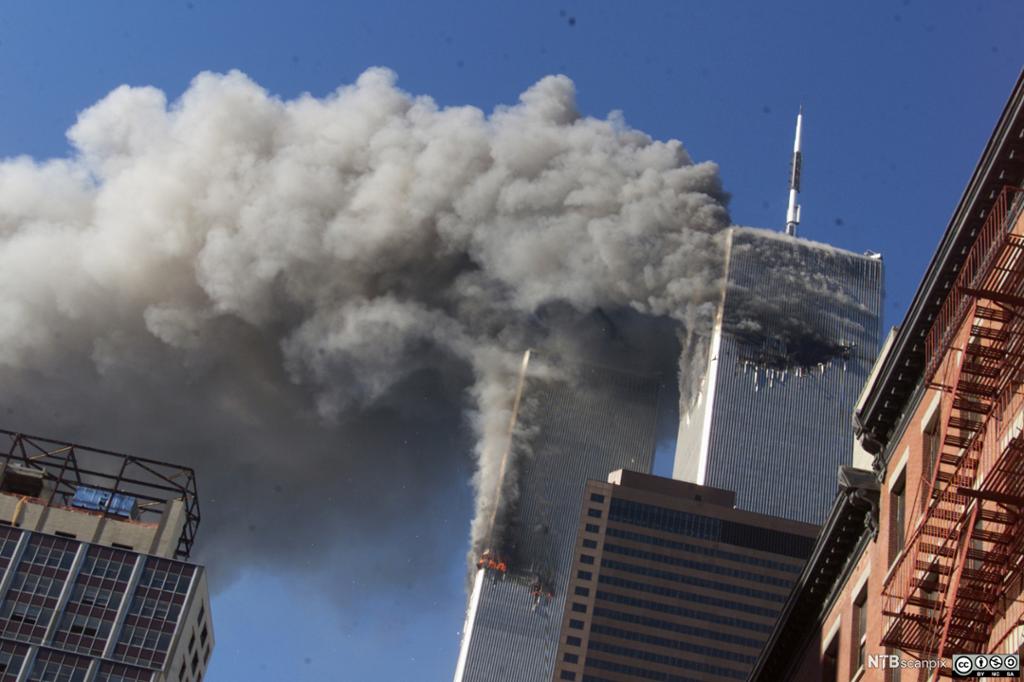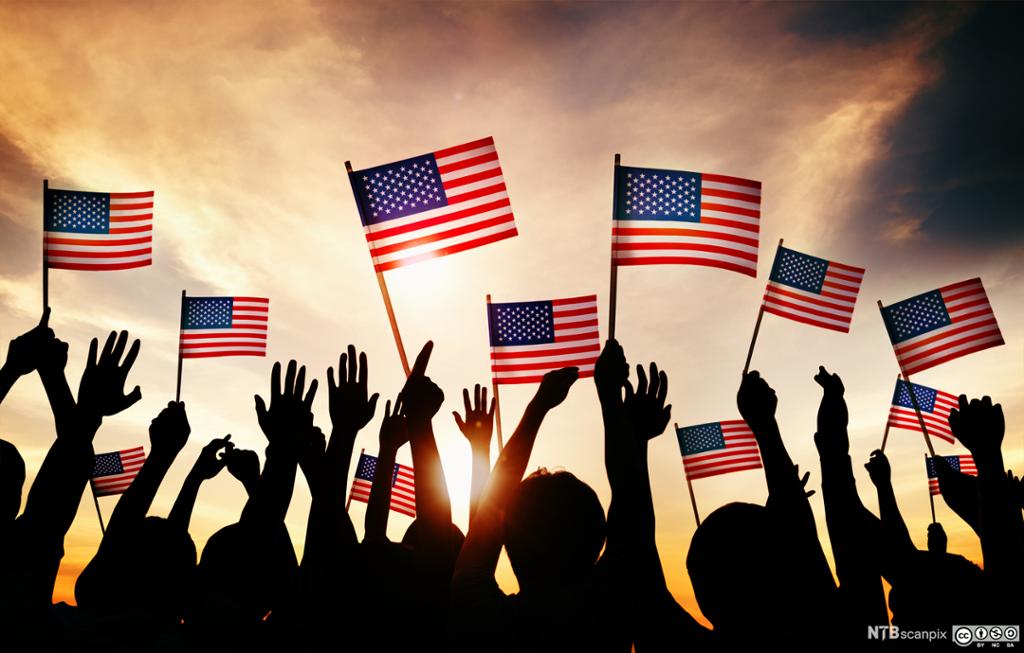
A turning point in American history
On September 11th 2001, two passenger airliners were deliberately crashed into the World Trade Center, another crashed into the Pentagon, and a fourth crashed into a field. Nearly 3000 people lost their lives. The impacts of 9/11 are impossible to understand entirely, but are best discussed from several viewpoints: as a defining moment in American history; as the start of ongoing international conflicts; and as a turning point in American politics.
9/11 was a turning point in American history. As often with tragedy, it brought people together to mourn the dead and injured, praise those who helped, and cemented pride in their country. The evening after the attacks, President George W. Bush gave a speech which echoed the sentiments of the grieving nation, but also made it clear that justice would be sought. Subsequently, Americans became eager to seek revenge.
In a sense, the planes didn’t just fly into the World Trade Center, but also flew into the heart of American ideology. Since the attack, life in America has changed, and although many Americans are more patriotic than ever, some question what America represents. They question the idea that the US is the world’s only superpower, loved and needed by the rest of the world. They have less faith in the notion of “City on a Hill”-the US as a beacon of freedom, power and culture for the rest of the world. After the attacks, this beacon is still shining, but there is a view that the world wants to take or extinguish its light. This has both united Americans in their desire to protect the light, but has also caused them to look with fear and suspicion at other nations and people.

“The War on Terror”
This desire for revenge was the start of an ongoing international conflict against terrorism. The “War on Terror” can be traced back to 9/11 and has affected the entire world, from increased security at airports, to suspicion of neighbours and surveillance of our communication and activities. After 9/11, the world is now one where people feel less safe in public places and fearful of others. Both the wars in Iraq and Afghanistan, as well as military efforts in Syria, have been part of this international conflict where the US leads efforts to end terror. Many developments have followed: Osama Bin Laden has been killed and terror groups such as al-Qaeda and IS have lost much power over the last 15 years. However, terror attacks continue to happen regularly in both Western and Eastern cities. The victims are mourned, the attacks receive much media attention, and efforts are made to stop and prevent them. But the War on Terror is formidable, as the enemy is not a formal state and does not only attack military troops, but most often civilians. Terror groups fight “infidels” who are a threat to their own religious and world views, and this includes Western countries and the US. The attacks are difficult to predict as they often use non-military means and instruments such as the planes in 9/11, homemade bombs, or vans to mow people down in crowded public areas. Such attacks are becoming so commonly reported in the media that people react less each time.
The Department of Homeland Security (DHS) and the Patriot Act
The effects of 9/11 in the US are now largely political and at the heart of many political debates is security versus privacy. The Department of Homeland Security (DHS) was established in 2002 with a mission to “safeguard the American people, our homeland, and our values”. Briefly, the DHS is responsible for organizing surveillance and taking action to prevent terrorism. Its influence can be seen everywhere, from customs at the airport to internet watchdogs. It is also the Department which oversees the Patriot Act. Soon after the attacks, the Patriot Act was passed, which aimed to give more power to the state to protect civilians from further terrorist attacks. The Act, among other things, established harsher penalties for those committing or aiding terrorist acts. This has resulted in more people being deported from the USA than ever before. Many Muslim Americans and foreign travellers experience being closely tracked and profiled as possible terrorists. But more controversially, the Act allowed increased use of surveillance by the government. Many Americans feel safer now that the government keeps a close eye on possible enemies; however, others feel the government has turned into “Big Brother”, monitoring their actions and encroaching on their privacy. Wiretapping and background checks have become standard surveillance techniques, but recently worries have increased around the government's ability to follow people’s internet activity, social media profiles and logs.
The repercussions of 9/11
The repercussions of 9/11 can be seen in every corner of the world and every aspect of life. Despite effective prevention and reduction in the number of safe terrorist havens, there are now more deaths than ever due to terrorism in the world - especially in the Middle East. Americans now question their neighbours and leaders and are divided – some are sceptical of their country's role in the world, while others wave their flags more vigorously than ever, demanding justice. American politics now revolves around these two views and the government seeks to protect its people and their liberties. Indeed, the terror on September 11th is an event which still casts a long shadow across the world.
Discussion Questions:
- Watch President Bush’s speech to the nation on the evening after the 9/11 attacks and analyze the speech for purpose, style and rhetorical devices. What important American ideologies does he touch upon in his speech? Why would this be particularly moving to Americans?
- Read through these views of the impacts of 9/11. Which do you think is the most significant? Why are views so varied?
- How far should the government go to protect its citizens? What should be allowed? When do they cross the line into invasion of privacy?
- Extremist terror groups, though losing their strongholds in the Middle East, are able to recruit the young not only from where they are based, but also from Western countries such as Norway and the US. Why do you think young people choose to join such organizations? What can multicultural societies do to prevent this?
Bibliography
Do we need a new strategy to prevent terrorist attacks on the United States? (15.12.2016). Retrieved December 14, 2017, from https://www.csis.org/analysis/do-we-need-new-strategy-prevent-terrorist-attacks-united-states
How U.S. Immigration Policy Has Changed Since 9/11 | HuffPost. (9.9.2016). Retrieved December 14, 2017, https://www.huffingtonpost.com/entry/us-immigration-since-911_us_57d05479e4b0a48094a71bc0
What is the USA Patriot Web. (n.d.). Retrieved December 14, 2017, from https://www.justice.gov/archive/ll/highlights.htm